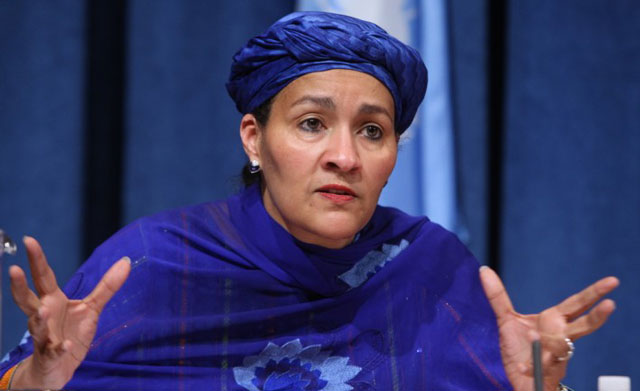
Kampala, Uganda | THE INDEPENDENT |At a time when Africa is mobilizing resources for pandemic recovery and sustainable development, illicit financial flows (IFFs) are robbing the continent of USD 50 billion annually. Illicit financial flows refer to the illegal movement of money from one country to another, through tax fraud, criminal activities, money laundering or bogus invoicing.
According to UN Deputy Secretary-General Amina Mohammed the losses would be enough to bridge nearly 75 per cent of Africa’s health financing gap, provide inclusive education for all children there, and fund infrastructure projects.
“These flows pose a threat to stability and security in African countries, undermine institutions and democracy, and jeopardize sustainable development and the rule of law,” Mohammed told a high-level virtual meeting on Thursday held under the African Union’s (AU) ‘Silencing the Guns’ initiative.
She added that women and girls are particularly exposed to criminal activities and conflicts driven by illicit financial flows as they are subject to trafficking and sexual violence which are used as weapons of war.
The meeting co-hosted by the Office of the UN Special Adviser on Africa and the AU’s Permanent Observer Mission to the UN, together with South Africa and Nigeria examined how illicit financial flows fuel instability in Africa. The event’s organizers emphasized that silencing the guns in Africa is needed now more than ever.
“There is circumstantial evidence that illicit financial outflows contribute to the devastation of peace and security by providing conflict, terrorist and criminal groups the financial means to conduct their operations and undermine peace”, said Fatima Kyari Mohammed, the AU’s Ambassador to the UN.
Cristina Duarte, the UN Special Adviser on Africa said the health and socio-economic fallouts from the crisis have strained African governments’ efforts to ensure access to services and improve livelihoods, while also placing hard-won development gains at risk.
A 2018 study by the Global Financial Integrity and the Economic Policy Research Centre shows that insufficient levels of financial transparency—globally and domestically—and government accountability in Uganda, coupled with a a regulatory system that can incentivize financial crimes are helping to drive high levels of illicit financial inflow and outflows in the country, which are undermining development efforts.
Tax evasion, money laundering, and related corruption were at the time costing Uganda at least USD 1 billion a year and nearly USD 3 billion more was lost to errors and omissions in the balance of payments over the last decade while tax evasion from imports and exports alone cost Uganda USD 6.7 billion between 2006 to 2015.
“From 2006-2015, the latest years for which the necessary data was available, potential trade mis-invoicing amounted to roughly 18 per cent of total Ugandan trade over the ten-year period. The potential over- and under-invoicing of imports from 2006-2015 was approximately USD 4.9 billion, and over-and under-invoicing of exports may have reached USD1.7 billion.”
The report cautioned that Uganda will struggle to meet its goal of rising to middle-income status and reducing its reliance on foreign debt unless it increases efforts to combat the commercial tax evasion, corruption, and money laundering of criminal proceeds and terrorist financing.
********
URN
The post Illicit financial flows rob USD 50 billion from Africa annually appeared first on The Independent Uganda:.
from The Independent Uganda: https://ift.tt/3qO6Rht
0 Comments